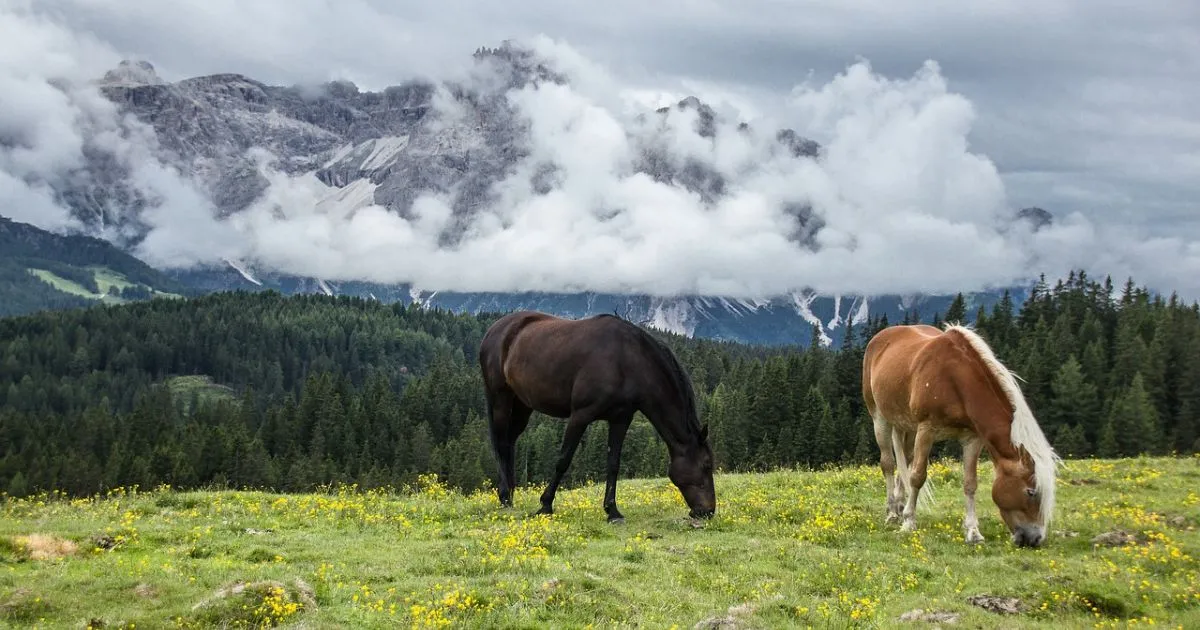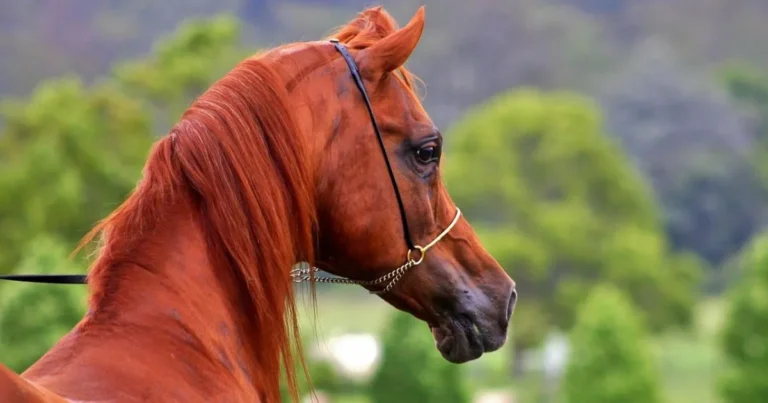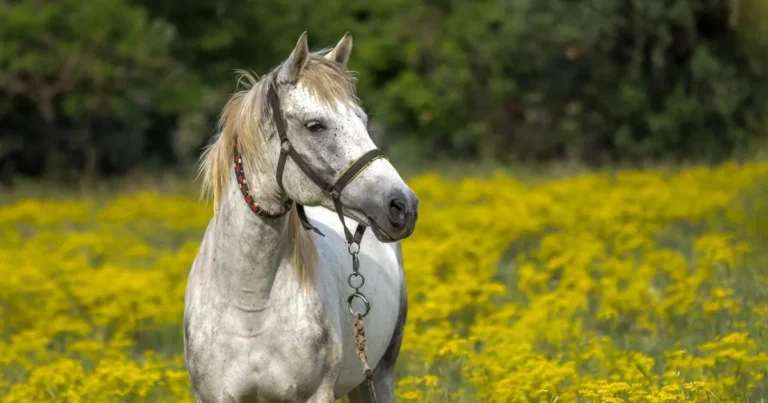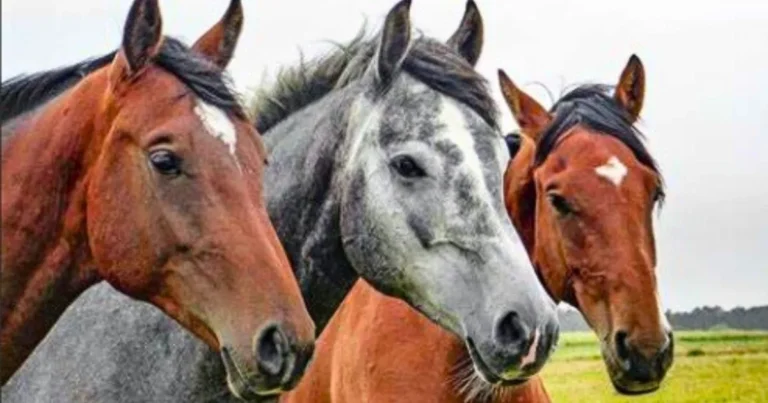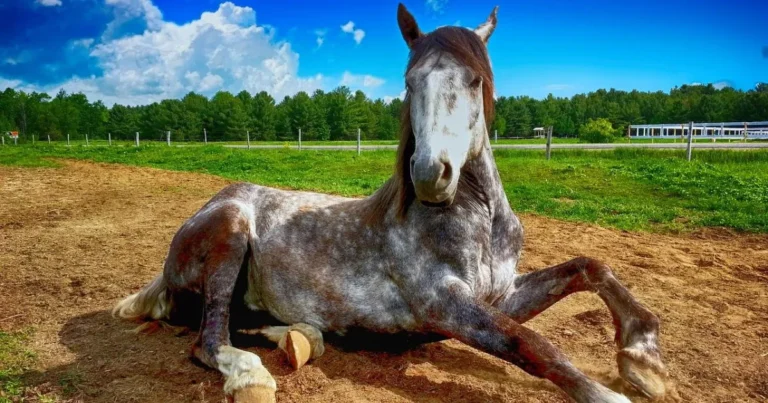Horse Lifespan Explained: How Long Does a Horse Live?
Table of Contents
Every hoofbeat tells a story of resilience and grace. As a horse enthusiast, you might wonder about the remarkable journey these majestic creatures undertake through their lifetime. Understanding horse lifespan isn’t just about numbers—it’s about appreciating the intricate dance of genetics, care, and environment that determines how long horses live.
Horses are extraordinary companions with an average lifespan ranging between 25 to 30 years. Your horse’s life expectancy depends on multiple factors, from breed characteristics to daily care practices. Some horses might surprise you by living well into their 30s with proper veterinary attention and compassionate management.
The horse lifespan is a testament to their adaptability and strength. Wild horses typically experience shorter lives compared to their domesticated counterparts. By understanding the nuances of equine longevity, you can provide the best possible care for your equine friend, ensuring they live a healthy, vibrant life.
Whether you’re a seasoned horse owner or simply fascinated by these magnificent animals, exploring their lifespan offers profound insights into their remarkable existence. Let’s embark on a journey to uncover the secrets behind how long horses truly live.
Understanding Horse Life Expectancy
Horses are amazing animals with lifespans that change based on many things. Their life span can be different if they live in the wild or with humans. Knowing how long a horse usually lives helps owners take better care of them.
The average life span of a horse is between 25 to 30 years. Some horses even live longer. Things like breed, genetics, food, health care, and where they live can affect how long a horse lives.
Wild vs. Domestic Horse Lifespans
Domestic horses usually live longer than wild ones. This is because of several big advantages:
- Regular vet visits
- Good food all the time
- Safe from predators
- Good living conditions
Record-Breaking Horse Ages
Some horses live way beyond what’s expected. Old Billy, a draft horse from England, is the oldest recorded horse. He lived an amazing 62 years.
Common Life Expectancy Ranges
| Horse Type | Average Lifespan | Factors Influencing Longevity |
|---|---|---|
| Wild Horses | 15-20 years | Environmental challenges, limited medical care |
| Domestic Horses | 25-30 years | Professional care, controlled nutrition |
| Exceptional Cases | 30-40 years | Excellent care, genetic predisposition |
Your horse’s life span depends on many things. Giving them the best care can make them live longer and happier.
Horse Life Stages and Development
Knowing the life stages of a horse is key to helping them live longer and healthier. Horses go through different growth phases that need special care and attention.
The horse’s life starts with four main growth stages:
- Newborn/Foal Stage: From birth to 4 months, they grow fast
- Weanling Stage: 4-12 months, they start eating solid food
- Yearling Stage: 1-2 years, they grow and start training
- Adolescent Stage: 2-4 years, they reach physical and sexual maturity
Each stage of a horse’s life has its own challenges and chances for health care. Good food, vet visits, and training are crucial for their growth and long life.
Adult horses usually reach their peak between 4-6 years old. They are in top shape and can do many things. Keeping an eye on their health during these years helps them live longer and avoid health problems.
When horses get older, around 15-20 years, they need special care. They need a softer diet, less hard work, and more vet visits to stay happy and healthy.
Horse Lifespan: Breed-Specific Differences
The lifespan of a horse can vary a lot depending on its breed. Genetics play a big role in how long a horse might live. Knowing these differences can help you care for your horse better.
Each breed has its own lifespan based on its genetics and physical traits. This means some horses live longer than others.
Small Breed Longevity
Smaller horse breeds usually live longer than bigger ones. Ponies and miniature horses are known for their long lives:
- Shetland ponies often live 30-40 years
- Welsh ponies can reach 35-40 years
- Miniature horses frequently live 25-35 years
Large Breed Life Expectations
Bigger horse breeds tend to have shorter lives. They face more physical strain and health issues:
| Breed | Average Lifespan | Notable Characteristics |
|---|---|---|
| Thoroughbred | 25-30 years | Athletic build, high-performance breed |
| Draft Horses | 20-25 years | Heavy body, significant muscle mass |
| Warmblood | 25-30 years | Versatile sporting breed |
Popular Breed Statistics
Your horse’s breed is key to its lifespan. Genetic predispositions greatly affect a horse’s life in captivity. Regular vet visits and good food can help your horse live longer, no matter its breed.
- Arabian horses often live 25-30 years
- Quarter Horses typically reach 25-35 years
- Appaloosas have an average lifespan of 25-30 years
Genetic Factors Affecting Horse Longevity
Genetics are key in how long a horse lives and stays healthy. Knowing what affects a horse’s lifespan helps you make better choices for their health. Some horses are born with traits that help them live longer and healthier, while others face more health issues.
Important genetic factors that impact horse longevity include:
- Inherited disease resistance
- Genetic predisposition to specific health conditions
- Breed-specific genetic characteristics
- Genetic diversity and hybrid vigor
Over time, selective breeding has changed horse health a lot. Good breeders work to eliminate genetic weaknesses and promote traits that lead to longer, healthier lives. For example, some bloodlines are more resistant to common health problems.
“Genetics is not destiny, but it provides a blueprint for potential health and longevity.” – Equine Genetics Research Institute
You can work with your horse’s genetics by:
- Conducting comprehensive genetic screenings
- Understanding your horse’s unique health risks
- Developing personalized preventative care strategies
- Consulting with veterinary geneticists
Even though you can’t change your horse’s genetics, you can improve their health. Regular vet visits, special diets, and proactive health care are key to helping your horse live longer.
Essential Health Care for Extended Lifespan
Proactive horse care is key to a long life for your equine friend. A good health management plan can greatly improve your horse’s life. It can even add years to their life.
Keeping your horse healthy is more than just food and shelter. It involves regular vet visits, prevention, and special care.
Strategic Veterinary Care Schedule
A good vet schedule is vital for a long life. Your horse needs regular check-ups. These include:
- Annual comprehensive physical examinations
- Routine blood work and health screenings
- Updated vaccination protocols
- Regular parasite control and deworming
Comprehensive Preventive Health Measures
Preventing health problems is better than treating them. Focus on these preventive steps:
- Maintain consistent exercise routines
- Monitor weight and body condition
- Implement stress reduction techniques
- Ensure proper environmental management
Critical Dental and Hoof Care
Dental and hoof care are often overlooked but crucial. Dental checks should happen twice a year. Hoof trimming is needed every 6-8 weeks.
“Prevention is always better than cure in equine healthcare.” – Veterinary Equine Specialists Association
By investing in comprehensive health care, you can ensure your horse lives a long, healthy, and comfortable life.
Nutrition’s Impact on Horse Health
Proper nutrition is key to a long, healthy life for horses. What your horse eats affects its health and lifespan. A good diet is essential for its well-being.
A balanced diet for horses includes the right nutrients for each stage of life. Knowing what your horse needs can protect its health for years to come.
- Hay Quality: Choose high-quality forage as the primary diet component
- Protein sources for muscle maintenance
- Essential minerals and vitamins for immune support
- Balanced grain mixtures appropriate to age and activity level
Drinking enough water is vital for horse health. Horses need clean water all the time. How much they drink depends on the weather, how active they are, and their individual needs.
As horses get older, their diet needs to change. Senior horses need special food because their metabolism slows down and they might have dental issues. Working with a vet nutritionist can help create a diet plan that fits your horse’s specific needs.
“Nutrition is not just about feeding, it’s about nourishing” – Equine Nutrition Expert
By focusing on proper nutrition, you can help your horse live a long, healthy life. This dedication ensures your horse stays vibrant and healthy.
Common Health Issues Affecting Longevity
It’s important to know about health problems your horse might face. This helps keep them healthy for a long time. Taking care of them early can make a big difference.
Age-Related Conditions
Older horses face certain health issues. Arthritis and Cushing’s disease are big concerns. These problems can sneak up on you, so watch closely and get the right care.
- Arthritis makes joints stiff and limits movement
- Cushing’s disease messes with hormones and metabolism
- Seeing the vet regularly can catch problems early
Preventable Health Problems
Many health issues can be avoided with the right care. Good food, exercise, and regular vet visits are key. They help keep your horse healthy for years.
| Health Issue | Prevention Strategy | Potential Impact |
|---|---|---|
| Dental Problems | Annual dental exams | Better eating and comfort |
| Laminitis | Controlled diet, manage weight | Less risk of hoof damage |
| Respiratory Issues | Clean stable, good air | Healthier breathing |
Emergency Medical Concerns
Being ready for emergencies is crucial. Know the signs and have a good vet on speed dial. This can save your horse’s life.
- Recognize colic signs
- Learn basic first aid
- Have emergency numbers handy
- Keep a first aid kit ready
By being informed and proactive, you can help your horse live a longer, healthier life.
Environmental Factors and Living Conditions
Your horse’s living environment is key to a long life. The quality of shelter, pasture, and social interactions greatly affects their lifespan.
Horses need well-designed living spaces for their health and happiness. A good environment includes:
- Adequate shelter from extreme weather conditions
- Clean, spacious living areas
- Access to quality pasture
- Opportunities for social interaction
Proper shelter keeps horses safe from harsh weather. A well-ventilated stable with enough space helps them move freely and lowers stress. Natural light and fresh air are crucial for their health.
| Environmental Factor | Impact on Horse Health |
|---|---|
| Pasture Quality | Directly affects nutrition and exercise |
| Social Interactions | Reduces stress and promotes mental well-being |
| Shelter Conditions | Protects from environmental stressors |
“A horse’s environment is as important as its diet in determining overall health and longevity.” – Equine Veterinary Association
Climate is also crucial in horse care. Horses need protection from extreme temperatures. They need proper ventilation in hot weather and warm, dry spaces in cold months. Regular checks on their living conditions can help extend their life.
Exercise and Activity Requirements
Regular exercise is vital for a horse’s long life. It keeps them physically and mentally healthy. Finding the right balance of activity is crucial for a long, happy life.
Horses of different ages and breeds need different exercises. Young horses need activities that build strength and coordination. Older horses do better with gentle, low-impact exercises that keep their muscles and joints flexible.
- Moderate daily exercise helps prevent obesity
- Cardiovascular activities support heart health
- Mental stimulation through varied activities reduces stress
- Consistent movement maintains muscle strength
The best exercise routine includes:
- Regular walking and trotting
- Controlled riding sessions
- Pasture time for natural movement
- Gentle stretching exercises
Warning signs of overexertion include excessive sweating, rapid breathing, and reluctance to move. Always talk to a vet to create an exercise plan for your horse. Watching how your horse reacts to exercise helps avoid health problems and supports a long, healthy life.
“Movement is medicine for horses, just as it is for humans.” – Equine Health Expert
Signs of Aging in Horses
As your horse gets older, it’s important to notice the signs of aging. This helps keep your horse healthy and happy for as long as possible. Watching for these changes lets you care for your aging horse the best way.
Physical Changes in Aging Horses
Several physical changes show that a horse is aging:
- Greying hair, especially around the muzzle and eyes
- Less muscle and possibly losing weight
- Less flexible skin
- Potential lumps or bumps
- Changes in coat texture and shine
Behavioral Shifts in Senior Horses
Aging horses may act differently, showing they need special care:
- Less energy and slower movement
- More sensitive to changes in their environment
- Less interested in socializing with others
- Potentially more irritable or confused
Adapting Care for Senior Horses
Proactive care can greatly improve your horse’s life in its later years. Here are key changes to make:
| Area of Care | Recommended Adaptations |
|---|---|
| Nutrition | Senior-specific feed, easier-to-digest proteins |
| Exercise | Gentler, shorter sessions with lower intensity |
| Veterinary Care | More frequent check-ups, specialized geriatric assessments |
| Living Conditions | Warmer shelter, softer bedding, reduced environmental stress |
“Understanding and adapting to your horse’s aging process is the key to ensuring a comfortable and dignified senior life.” – Equine Veterinary Experts
By paying attention and responding to these changes, you can help your horse live a good life. This is true for their entire lifespan.
Conclusion
Knowing about horse lifespan is more than just numbers. Your care is key to a longer life for your horse. Good nutrition, health care, and lifestyle choices can help horses live longer than expected.
Every horse is different, and their lifespan depends on many things. Good vet care, balanced food, regular exercise, and careful management are important. The bond between you and your horse needs constant learning and adjusting to their health needs.
Quality of life is as important as how long a horse lives. Preventive health, meeting their health needs, and a supportive home can make a big difference. Your effort can ensure your horse lives well and happily.
Horse lifespan shows the love and care you give. Each horse is a special friend. With the right care, you can help them live a long, happy life.

